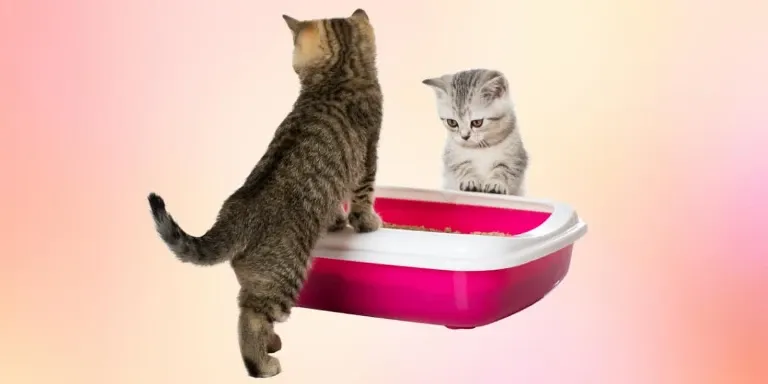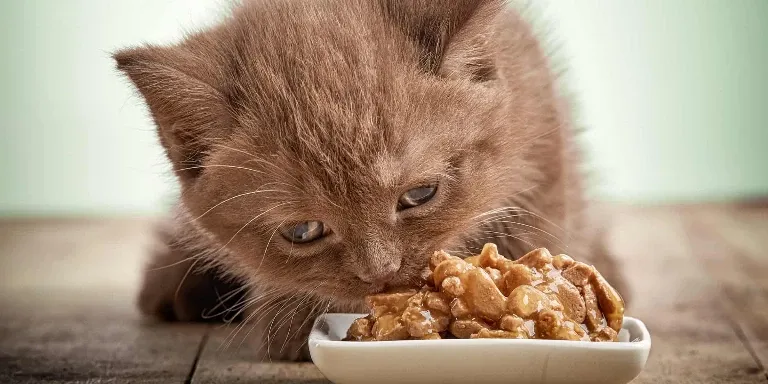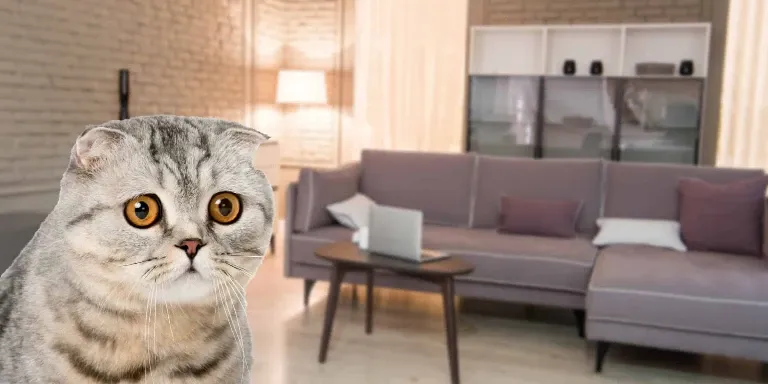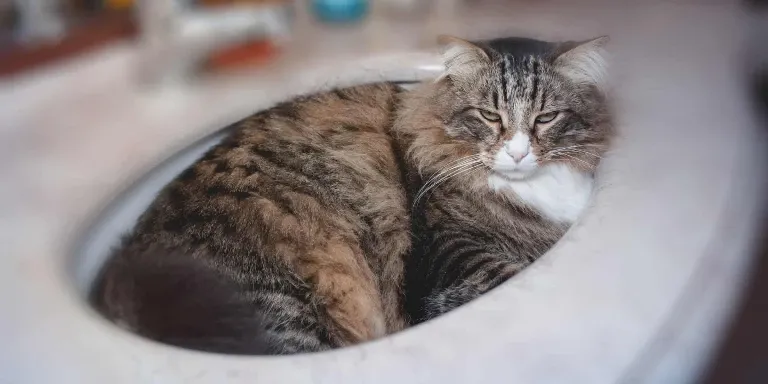The Best Fluffy Pancakes recipe you will fall in love with. Full of tips and tricks to help you make the best pancakes.
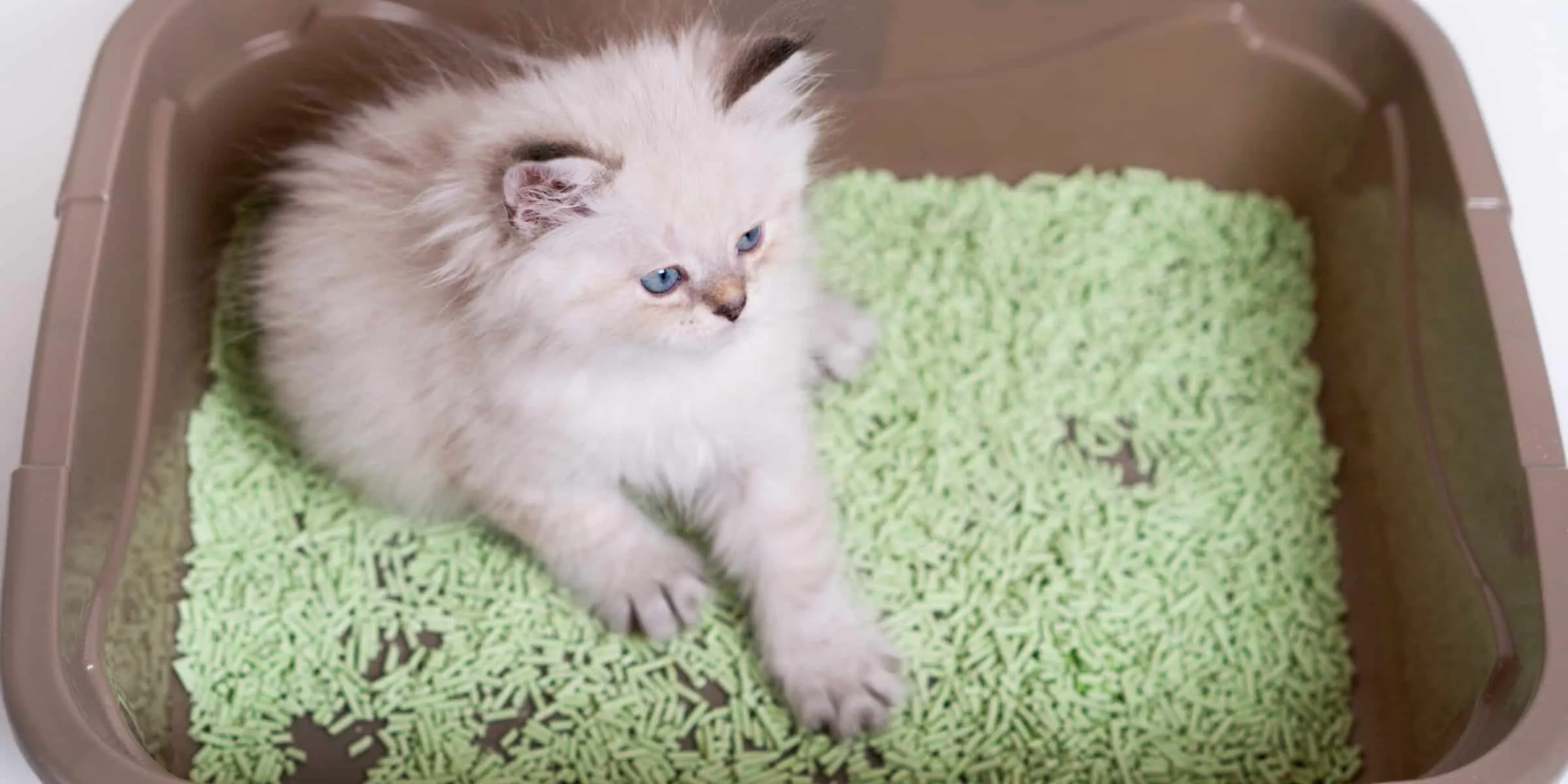
Are you a new kitten owner wondering if your furry friend will eat litter? It’s a common concern among cat parents, and for good reason. Kittens are curious creatures, and they tend to explore their surroundings with their mouths.
Kittens may eat litter out of curiosity or playfulness, but it is not recommended as it can lead to health problems such as digestive issues or blockages. It is important to provide kittens with appropriate toys and playthings to discourage them from eating litter. Additionally, using non-toxic, unscented litter can help reduce the risk of harm if they do ingest it.
While it may seem harmless, eating litter can pose serious health risks to your kitten. As a responsible pet owner, it’s important to understand why kittens might eat litter, how to prevent it, and what to do if it happens.
In this article, we will delve into the topic of whether kittens will eat litter. We will explore the risks associated with litter consumption, common reasons why kittens may eat litter, and the types of litter to avoid. Additionally, we’ll provide tips for preventing litter consumption and what to do if your kitten does eat litter.
By the end of this article, you will have a better understanding of your kitten’s curious behavior and how to keep them safe and healthy.
Understanding Your Kitten’s Curiosity
You’ll notice that your kitten’s curiosity is always piqued, so it’s important to keep an eye on them and make sure they don’t get into anything they shouldn’t, like the litter box.
Kittens are naturally explorative, and they love to play and discover new things. They will jump and climb around, and investigate anything that catches their attention. This is why it’s important to create a safe environment for your kitten and make sure they are always supervised.
Kitten exploration is a natural part of their development, and it’s important to encourage their playful behavior. However, it’s also important to set limits and boundaries to prevent them from getting into trouble. Keeping your litter box out of reach and supervising your kitten’s playtime are two ways to limit their access to the litter box.
While kittens may be curious about the litter box, it’s important to understand the risks of eating litter. Ingesting litter can cause digestive problems and even lead to serious health issues. It’s important to monitor your kitten’s behavior and keep them away from the litter box to prevent any potential risks.
The Risks of Eating Litter
As a kitten owner, it’s important to be aware of the risks that come with your furry friend’s curiosity.
One potential danger is the possibility of blockages caused by ingesting litter, which can lead to severe health issues.
Additionally, certain types of litter can be toxic to your kitten, causing vomiting, diarrhea, and other symptoms.
Stay vigilant and monitor your kitten’s behavior to keep them safe from these hazards.
Potential Blockages
It’s important to be aware that kittens can potentially experience blockages if they eat litter. This is because clumping litter, which is commonly used, can expand and harden in the stomach, causing a blockage in the intestinal tract. This can lead to serious health complications, such as dehydration, vomiting, and even surgery.
As a responsible pet owner, it’s essential to take preventative measures to ensure your kitten doesn’t ingest litter, such as providing a separate litter box for your cat and keeping it out of reach.
In addition to the dangers of ingestion and preventing accidents, it’s crucial to also consider the toxic effects of litter on kittens. Many types of litter contain chemicals and additives that can be harmful if ingested or inhaled.
For example, silica gel litter can cause respiratory problems, while clay-based litter can contain sodium bentonite, which can cause gastrointestinal issues. As a result, it’s important to carefully consider the type of litter you use and opt for natural or biodegradable options whenever possible.
By being mindful of potential blockages and toxicity concerns, you can ensure the safety and well-being of your furry friend.
Toxicity Concerns
Watch out for the harmful effects of litter on your furry friend, like a hidden bomb waiting to explode. You may not know that some types of litter can be toxic to kittens.
Litters that contain silica, bentonite, and clay can cause respiratory problems when inhaled. Moreover, some litters have chemical substances that can trigger allergies, skin irritations, and digestive issues in kittens. As a responsible pet owner, you need to be aware of these toxicity concerns and choose the right type of litter for your kitten’s well-being.
The health implications of ingesting litter can be severe for kittens. Litter ingestion can lead to blockages in the digestive system, which can cause vomiting, diarrhea, and even death. Moreover, some litters contain chemicals that can be poisonous when ingested.
Therefore, it’s crucial to keep your kitten away from the litter box and supervise them during litter training. In the next section, we’ll discuss some reasons why kittens might eat litter, and how to prevent it from happening.
Reasons Why Kittens Might Eat Litter
You may be wondering why your adorable little feline friend is chowing down on their litter. There are several reasons why kittens might eat litter, including kitten behavior and nutritional deficiencies. Here are some possible reasons why your kitten is eating litter:
- Curiosity: Kittens are naturally curious and may explore their environment by tasting things they encounter. This behavior is particularly common in young kittens who are still learning about the world around them.
- Boredom: Kittens who are left alone for long periods of time may become bored and turn to litter-eating as a way to pass the time.
- Nutritional deficiencies: Some kittens may eat litter because they are not getting all of the necessary nutrients from their diet. This behavior is more common in kittens who are not getting enough protein or who are not getting enough vitamins and minerals.
If you notice your kitten eating litter, it’s important to take action to address the underlying cause of the behavior. This may involve changing your kitten’s diet, providing more stimulation and playtime, or switching to a different type of litter that is less appealing to your kitten.
In the next section, we’ll discuss the types of litter to avoid and how to choose the best litter for your kitten.
Types of Litter to Avoid
To keep your kitten safe and healthy, avoid using clumping litter that contains sodium bentonite. This type of litter can cause respiratory issues and digestive problems if ingested.
Instead, consider biodegradable alternatives and natural litter options. These options are not only safer for your kitten, but they’re also better for the environment.
Biodegradable litter is made from materials that can break down naturally over time, such as recycled paper, corn, and wheat. These options are often less dusty and more gentle on your kitten’s paws.
Natural litter options are made from materials that occur naturally in the environment, such as wood chips, sawdust, and grass. These options are also less likely to contain harmful chemicals or additives.
By choosing biodegradable or natural litter options, you can give your kitten a safer and more comfortable litter box experience. However, even with these options, it’s important to monitor your kitten’s behavior to ensure they’re not consuming the litter.
In the next section, we’ll discuss tips for preventing litter consumption and keeping your kitten healthy.
Tips for Preventing Litter Consumption
Purrfectly prevent your precious pet from pawing and playing with litter by providing plenty of playful distractions. Kittens are naturally curious, so it’s important to keep them entertained to avoid boredom. This will not only prevent litter consumption but also promote their physical and mental wellbeing.
Supervision strategies are crucial in preventing litter consumption. When your kitten is using the litter box, make sure to supervise them closely and remove any litter that spills out. You can also consider using a litter box with a lid or a mat to catch any excess litter. It’s also important to keep the litter box clean and replace the litter frequently to avoid any odors that may attract your kitten.
If you’re still concerned about your kitten consuming litter, there are alternative litter options available. You can try using non-clumping paper or wood-based litter, which is less likely to be ingested. Additionally, you can provide your kitten with grass or catnip to chew on, which can help satisfy their urge to eat.
Remember, prevention is key, but if your kitten does consume litter, it’s important to take action immediately.
In the subsequent section about what to do if your kitten eats litter, we will discuss the steps you should take to ensure the health and safety of your furry friend.
What to Do If Your Kitten Eats Litter
If your feline friend has consumed litter, it’s crucial to take immediate action to ensure their health and safety. The first step is to call your veterinarian and describe the situation. They may ask you to bring your kitten in for a physical examination to determine if there are any blockages or foreign objects in their digestive system.
Preventive measures can also be taken to avoid litter consumption in the future. One way is to switch to a non-clumping, biodegradable litter that’s safer for your pet to ingest. You can also provide your kitten with a designated litter box and supervise them during use to discourage them from eating the litter.
Behavioral training can also be helpful in preventing litter consumption. Encourage your kitten to play with toys and engage in other activities to distract them from the litter box. Positive reinforcement, such as treats and praise, can also be used to encourage good behavior.
In the next section, we’ll discuss the signs of litter consumption and what to look out for to ensure your kitten’s health and well-being.
Signs of Litter Consumption
If you’ve discovered that your kitten has eaten litter, it’s important to identify the signs of litter consumption. Observing your kitten’s behavior is the key to figuring out if they have ingested litter.
Some common signs that your kitten may have eaten litter include vomiting, diarrhea, and decreased appetite. Additionally, if your kitten is lethargic or appears to be in pain, these may also be signs that they have consumed litter.
If you notice any of these signs, it’s important to take action. While it’s not uncommon for kittens to eat litter, it can be dangerous if they consume a significant amount.
Fortunately, there are training alternatives that you can use to help your kitten avoid eating litter. One option is to switch to a different type of litter that is less appealing to your kitten. Additionally, you can try using a litter box with a hood or a covered litter box to make it more difficult for your kitten to access the litter.
- Vomiting, diarrhea, and decreased appetite are common signs that your kitten may have eaten litter.
- Lethargy or appearing to be in pain may also be signs that your kitten has consumed litter.
- Taking action is important if you notice any of these signs.
- Switching to a different type of litter can be a helpful training alternative.
- Using a litter box with a hood or cover can make it more difficult for your kitten to access the litter.
If you’ve tried training alternatives and your kitten continues to eat litter, it may be time to seek veterinary care. In the next section, we’ll discuss when it’s appropriate to seek help from a professional.
When to Seek Veterinary Care
It’s crucial to consult a vet if your feline friend displays persistent symptoms of litter consumption. Some signs to watch out for include vomiting, diarrhea, lethargy, and loss of appetite. These symptoms can be caused by a variety of conditions, including intestinal blockages, infections, and poisoning.
Understanding your kitten’s behavior can also help you determine when to seek veterinary care. Kittens are curious creatures that love to explore their environment. They may nibble on objects out of curiosity, including litter. However, if your kitten displays persistent symptoms of litter consumption, it’s important to take them to the vet for a check-up.
In some cases, litter consumption may not be the cause of your kitten’s symptoms. However, it’s always better to err on the side of caution and seek veterinary care. A vet can perform a physical exam, run diagnostic tests, and provide the necessary treatment to help your kitten recover.
By taking proactive steps to care for your kitten’s health, you can ensure that they live a happy and healthy life.
Can Kittens Develop a Habit of Eating Litter During Litter Box Training?
During essential litter box training steps, kittens can develop a habit of eating litter. This behavior can be dangerous as it may lead to intestinal blockages. To prevent this, use non-clumping litter and monitor your kitten closely during training. Gradually transition to clumping litter once the kitten stops eating it.
Conclusion
In conclusion, taking care of a kitten can be a rewarding experience, but it also comes with its challenges. One of these challenges is dealing with a kitten’s curiosity and potential desire to eat litter. As a responsible pet owner, it’s important to understand the risks and reasons behind this behavior, as well as take steps to prevent it from happening.
Just like a gardener must constantly prune their plants to ensure they grow properly, a cat owner must constantly monitor their kitten’s behavior and environment to ensure they stay healthy and safe. By avoiding certain types of litter, providing appropriate alternatives, and seeking veterinary care when necessary, you can help your kitten avoid the temptation of eating litter and ensure their well-being.
Remember, your kitten’s counting on you to be their protector and guide, so take the necessary steps to keep them happy and healthy.

